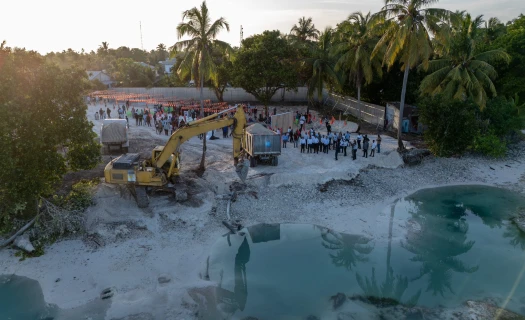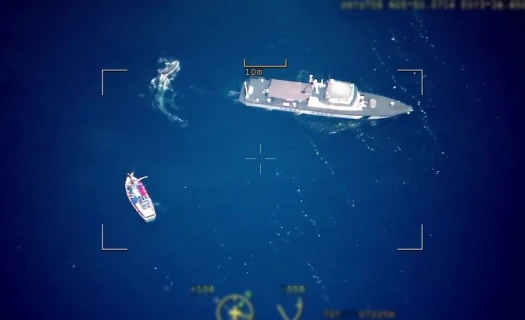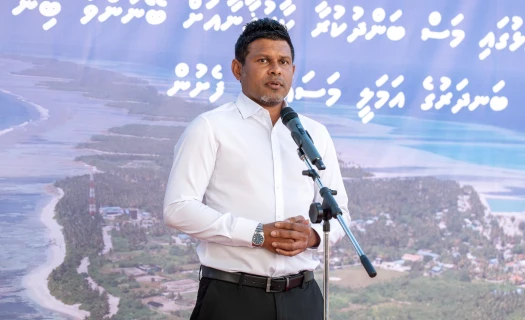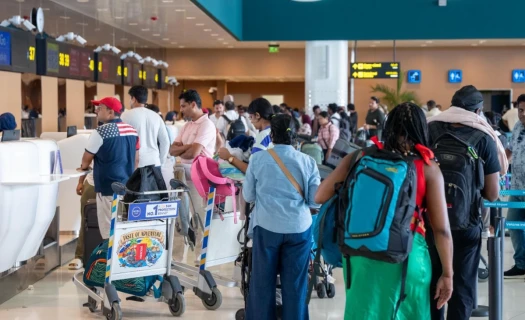Tue, 03 Feb 2026
|DHIVEHI
Can the Maldives secure a place on the global aquaculture map?
01 Aug 2025
|
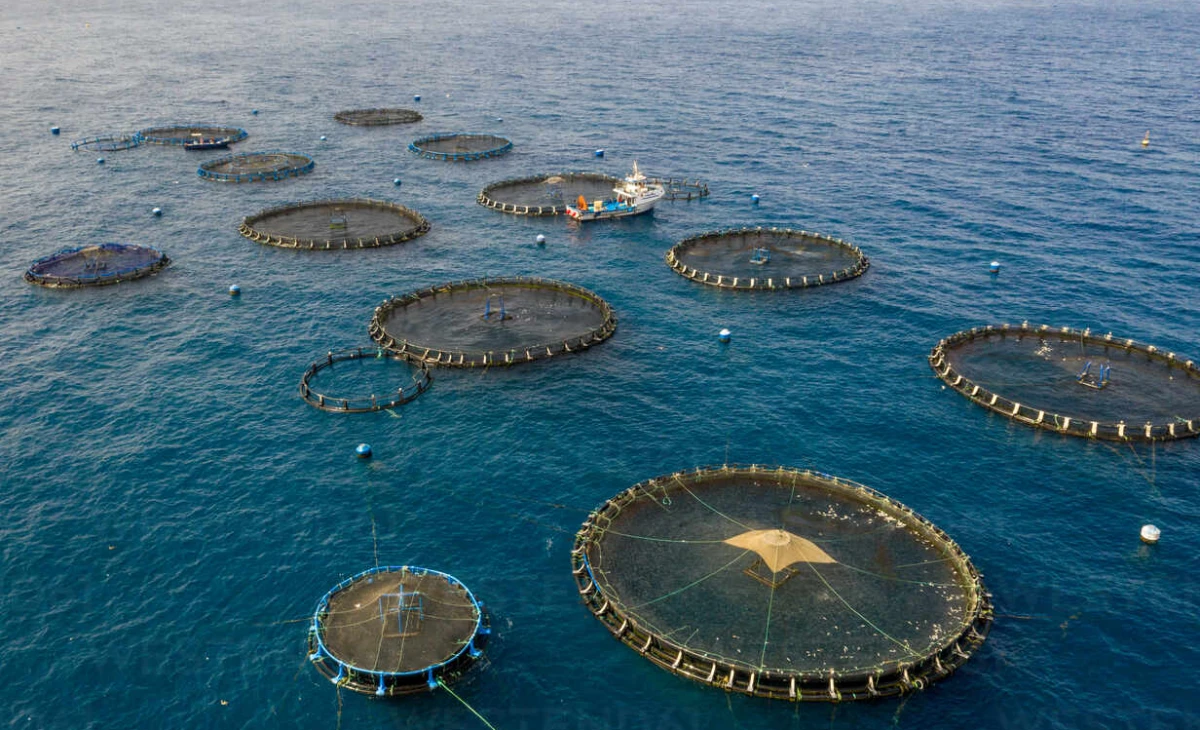
Aerial view of fish farm in Tenerife, Canary islands, Spain --- Photo: Westend61
Chinese Ambassador to the Maldives, Kong Xianhua, recently remarked that given the country’s extensive territorial waters, it would not be surprising to see the Maldives rank among the top ten aquaculture producers globally in the near future.
A bold prediction – but is it already happening?
At present, the global aquaculture industry is dominated by large-scale producers. Countries like China, Indonesia, India, and Vietnam produce millions of tonnes of farmed seafood annually, supported by decades of investment in infrastructure, technology, and skilled labour. By comparison, the Maldives is only beginning to explore its potential.
Geographically, the country seems ideal. With 99 per cent of its territory covered by water, aquaculture appears to be a natural fit. However, abundant ocean space does not guarantee success. The Maldives comprises nearly 1,200 islands which are geographically scattered, making the movement of equipment, seed stock, and harvested products a significant logistical challenge.
The Maldivian economy adds to the urgency. While the country was once rooted in fishing, it now relies heavily on tourism – a sector that is highly susceptible to global shocks. Fisheries still contribute to GDP, jobs, and exports. Yet with agriculture contributing just 1.2 per cent to GDP, and growing concerns over declining fish stocks, aquaculture could offer a much-needed path toward diversification, resilience, and food security.
Aquaculture offers a promising solution on several fronts. It can reduce pressure on wild fish populations, bolster food security, and help diversify an economy that is both tourism-dependent and reliant on food imports. Developing a robust aquaculture sector could enhance national resilience and move the country toward greater self-sufficiency.
Recent developments suggest momentum is building. In February 2025, the Ministry of Fisheries and Ocean Resources, in partnership with China’s Fujian Fisheries Research Institute, launched a training programme covering sea cucumber farming, algae cultivation, marine fish rearing, and marine conservation practices.
A few months later, the Maldives inaugurated its first seaweed cultivation project in Baa Fehendhoo, following a study by the Food and Agriculture Organization that confirmed the suitability of local waters.
Regulatory changes are also underway. The Government now permits the lease of lagoons and offshore areas that are not under island council jurisdiction. Previously, only uninhabited islands were allocated for aquaculture.
The Maldives has also signed a Memorandum of Understanding with India’s Department of Fisheries to enhance cooperation in hatchery development, species diversification, and aquatic health. The agreement includes training in marine engineering, refrigeration, and biosecurity.
Despite these efforts, several challenges remain. Competing with global leaders will require more than ambition. The Maldives faces significant gaps in infrastructure, research, financing, and technical capacity. Environmental considerations are also critical. Coral reefs – central to both marine biodiversity and tourism – could be harmed by poorly managed aquaculture operations. Issues such as disease outbreaks, water pollution, and the misuse of antibiotics are well-documented in other countries and must be proactively addressed.
Good governance and transparent decision-making will also play a key role in the sector’s long-term success. As the Maldives explores large-scale aquaculture development, it will be essential to ensure that regulatory processes are clear, inclusive, and equitable – particularly when it comes to lagoon leasing and community engagement. Building public trust and ensuring that island communities benefit from these initiatives will strengthen both sustainability and social support.
Ambition alone will not secure the Maldives a place on the global aquaculture map. Top producers rely on deep-rooted infrastructure and decades of development. Catching up will take more than partnerships and pilot projects; it demands long-term planning, local expertise, and a firm commitment to sustainability.


